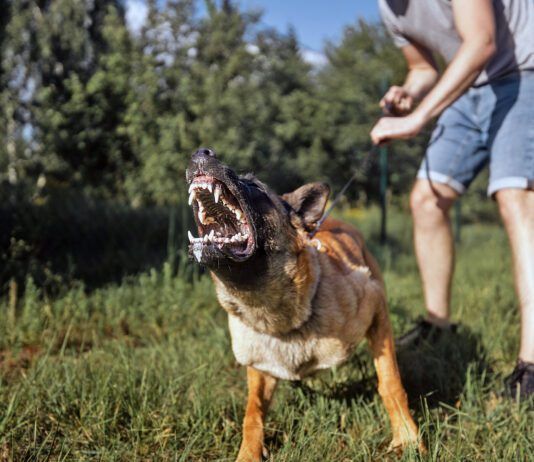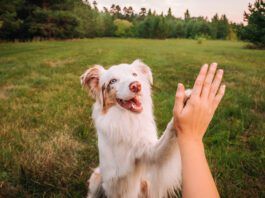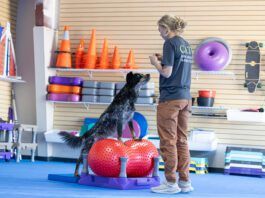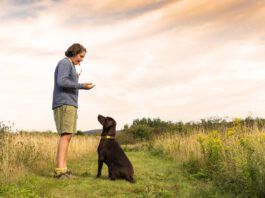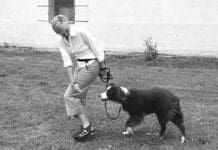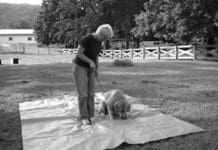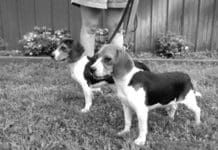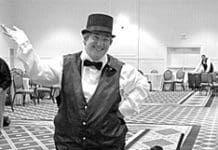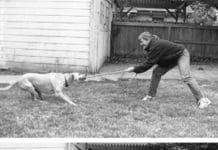Teach Your Dog to Walk on Leash
Walking politely at your side doesn’t seem like it should be so difficult to teach a dog, but it often proves to be the most challenging behavior for dog owners to achieve. Dogs who are letter-perfect with their sits and downs, targeting, and “leave it” exercises in the training center happily drag their owners across the parking lot to and from their cars before and after class.
Utilize Feeding Time as Training Time
You may think of it simply as a convenient vessel, useful for keeping your dog's food gathered in one place, off the floor. Your dog probably has a very different perspective. For him, the bowl is likely to be a high value object of great import, especially if he's a hearty eater. In this magical dish, one or more times a day FOOD appears.
Dog Crating Difficulties
provide your puppy (or new dog) with frequent opportunities to relieve himself in an appropriate place. Don't leave him in the crate longer than he can "hold it."üAs a first step with dogs who are reluctant to go in their crates
Assistance Dogs
Have you ever watched an assistance dog work? On the campus of the Virginia university where I attended graduate school, I often crossed paths with a student who used a wheelchair, accompanied by her assistance dog, a lovely Golden Retriever. They went to classes, visited the snack bars and cafeteria, hung out in the student lounges, and hoofed it all around campus together.
Teaching Your Dog To Greet People Without Jumping
Week 2 of my Peaceable Paws Good Manners class, I ask the question, “How many of your dogs jump up on people?” Generally at least 80 percent of the dog owners in class raise their hands. “Why do they jump up?” I ask. I usually get at least one incorrect answer of “Dominance!” but most of my students realize their dogs jump up for attention. And because much of the time the behavior is successful, it’s a challenging one to extinguish.
Your Dog’s Ability to Track Scents
Humans have taken advantage of dogs' incredibly keen sense of smell over the ages for such uses as hunting, tracking lost and fugitive humans, and more recently, the detection of bombs, narcotics, and other contraband. It's well known that a dog's nose is many times sharper than our own estimates range from 10,000 to 100,000 times superior to ours, with a far greater number and variety of scent receptors in their noses, more neurons linking the nose to the brain, and a greater proportion of their brains devoted to smell.
Remedial House Training for Dogs
Meet Mollie
Canine Musical Freestyle
bonding
How to Play Tug-of-War With Your Dog
Some trainers say you shouldn’t play tug with your dog. Not me! Those of you who enjoy this energy-eating aerobic activity with your dog will be pleased to know that I personally think it’s a fine game to play, as long as you’re using appropriate tug toys and playing with rules.
Young Dogs Learn From Older Well-Behaved Dogs
which includes social facilitation, mimicking, and trial-and-error learning.üFollowing the dog who responds properly to the Come!" cue helps the newcomer learn it
Advanced Dog Training Methods: How to “Fade” Prompts and Lures
looking right at them
Why Punishment-Based Dog Training Doesn’t Work
By definition, punishment is something that will decrease the probability of the occurrence of a certain behavior. Generally, this punishment involves something that is sufficiently startling or aversive so as to thwart the “problem” behavior. If the dog has benefitted from the behavior in the past, it will take even more startling or aversive punishment to override his expectation of getting that reward again. Frequently, a punished dog stops attending to you; you become something to be avoided.


